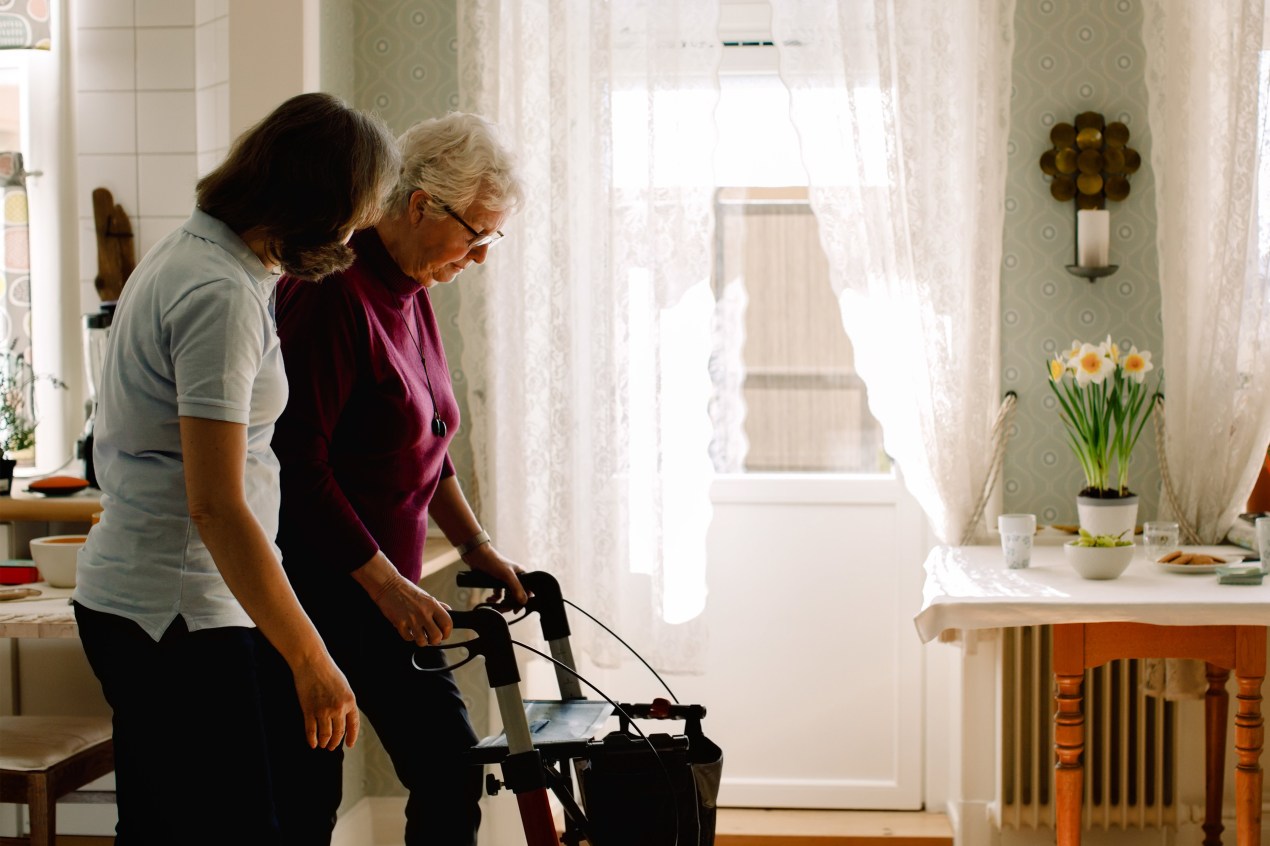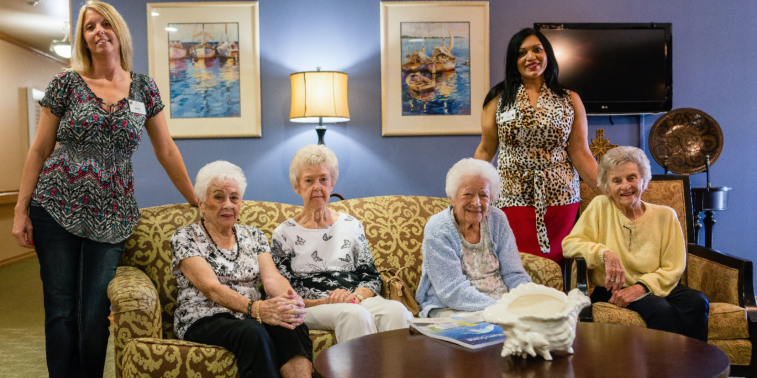How to Supply Purposeful and Individualized Dementia Care
The arrangement of personalized and meaningful dementia treatment needs a nuanced understanding of each individual's special history and choices. Care methods must be customized to involve the individual in means that reverberate with their past experiences, thereby cultivating emotional links and improving general wellness.
Recognizing Mental Deterioration Individuality

Care service providers should analyze cognitive capacities, emotions, and behavior patterns to create individualized care plans. This might include adjusting interaction styles, utilizing acquainted routines, and making use of significant tasks that resonate with the individual's previous experiences. As an example, engaging a person with an enthusiasm for songs via musical activities might evoke favorable memories and enhance emotional health.
In addition, comprehending individuality promotes a compassionate method that appreciates the dignity and autonomy of those coping with mental deterioration. It encourages caretakers to listen actively, observe behavioral hints, and stay adaptable in their caregiving techniques (charlotte care home). By prioritizing individuality, caregivers can not only improve the lifestyle for those with dementia but likewise develop a more profound understanding of their unique perspectives, ultimately resulting in a lot more understanding and efficient care
Structure Trust Fund and Relationship
Establishing trust and relationship is essential in dementia treatment, as it produces a safe and supportive setting for individuals influenced by the problem. Structure these links needs constant, compassionate communications that prioritize the demands and sensations of the individual. Caregivers must come close to communications with empathy, identifying the special challenges dealt with by those with mental deterioration, consisting of amnesia, confusion, and emotional distress.
Caretakers need to use clear, simple language and non-verbal cues to share understanding and support. Active listening demonstrates respect and recognition, permitting people to share themselves without concern of judgment.
Knowledge with daily activities and caregivers advertises a feeling of stability, allowing individuals to really feel even more at ease. By doing so, caregivers enhance the person's identification, advertising self-respect and regard, ultimately leading to stronger, extra purposeful connections in the context of dementia treatment.
Tailoring Tasks and Engagement
Engaging people with mental deterioration with tailored activities can significantly boost their high quality of life and promote a much deeper connection between caregivers and those in their treatment. Customization is crucial, as it recognizes the special backgrounds, passions, and capacities of each individual. Tasks must be created to promote cognitive functions, advertise physical movement, and motivate social interaction, all while continuing to be enjoyable and satisfying.
To customize tasks successfully, it is vital to analyze the individual's preferences and cognitive important link capacities. As an example, some might locate delight in gardening, while others could value music or art. Straightforward, acquainted jobs can evoke positive memories and provide a feeling of success. In addition, including components of regimen can offer comfort and stability, allowing people to involve with activities more with confidence.
Caregivers can enhance engagement by getting involved alongside the individuals, cultivating an interactive and supportive environment. It is additionally vital to continue to be adaptable and adaptive, readjusting activities as needed based on the individual's energy degrees and state of mind. Ultimately, significant interaction via tailored activities not just boosts individuals with mental deterioration yet also improves the caretaker relationship, promoting mutual enjoyment and understanding.
Effective Communication Strategies
Reliable communication is crucial in dementia care, as it cultivates a feeling of link and understanding in between caretakers and people experiencing cognitive decline. Utilizing effective communication strategies can significantly enhance the top quality of communications and minimize disappointment for both celebrations.
First of all, utilizing basic, clear language is crucial. Acquainted words and brief sentences assist individuals comprehend and react much better. Additionally, maintaining a calm and positive tone can create an encouraging atmosphere, which is important for people that might feel confused or anxious.
Non-verbal communication plays a considerable role too. Caregivers ought to take notice of body language, facial expressions, and motions, as these hints can commonly convey greater than words - dementia care charlotte. Establishing eye More hints call and utilizing gentle touch can likewise share and reinforce links compassion
Energetic listening is an additional crucial element. Caregivers ought to be mindful, permitting people to reveal themselves completely, also if their speech is fragmented or unclear. This reveals regard and motivates extra open communication.
Finally, validating feelings and experiences is essential. Acknowledging emotions, despite their basis in truth, can give comfort and strengthen the caregiver-individual connection, advertising a more supportive environment.
Supporting Family Members Involvement
Family members participation plays a considerable duty in the total treatment and support of individuals with mental deterioration. Involving relative develops a collective environment that boosts the top quality of treatment, fosters psychological links, and ensures that the special requirements of the individual are fulfilled. Member of the family typically possess very useful understandings into the individual's background, preferences, and behaviors, which can be crucial in developing individualized care methods.

Furthermore, relative can be motivated to take part in everyday treatment activities, such as taking part in significant discussions or assisting with acquainted regimens. This not just aids suffer the person's sense of identity however additionally enhances familial bonds. Inevitably, by cultivating a comprehensive technique that values family contributions, care providers can improve the total experience for both individuals with dementia and their liked ones.
Final Thought
In verdict, providing individualized and purposeful mental deterioration care requires a thorough understanding of each person's distinct background and preferences. Jointly, these methods contribute to enhanced quality of life for individuals with mental deterioration.
The provision of personalized and Click This Link meaningful dementia care needs a nuanced understanding of each individual's distinct background and choices. By doing so, caretakers enhance the person's identification, promoting dignity and regard, inevitably leading to more powerful, much more meaningful relationships in the context of mental deterioration care.
Engaging individuals with mental deterioration via customized tasks can dramatically boost their high quality of life and promote a deeper link between caregivers and those in their treatment.Household participation plays a considerable function in the overall treatment and support of individuals with mental deterioration. Inevitably, by fostering an inclusive technique that values family members payments, care service providers can enhance the overall experience for both individuals with dementia and their enjoyed ones.